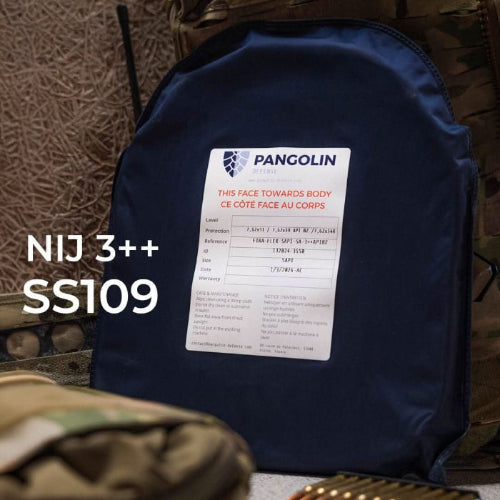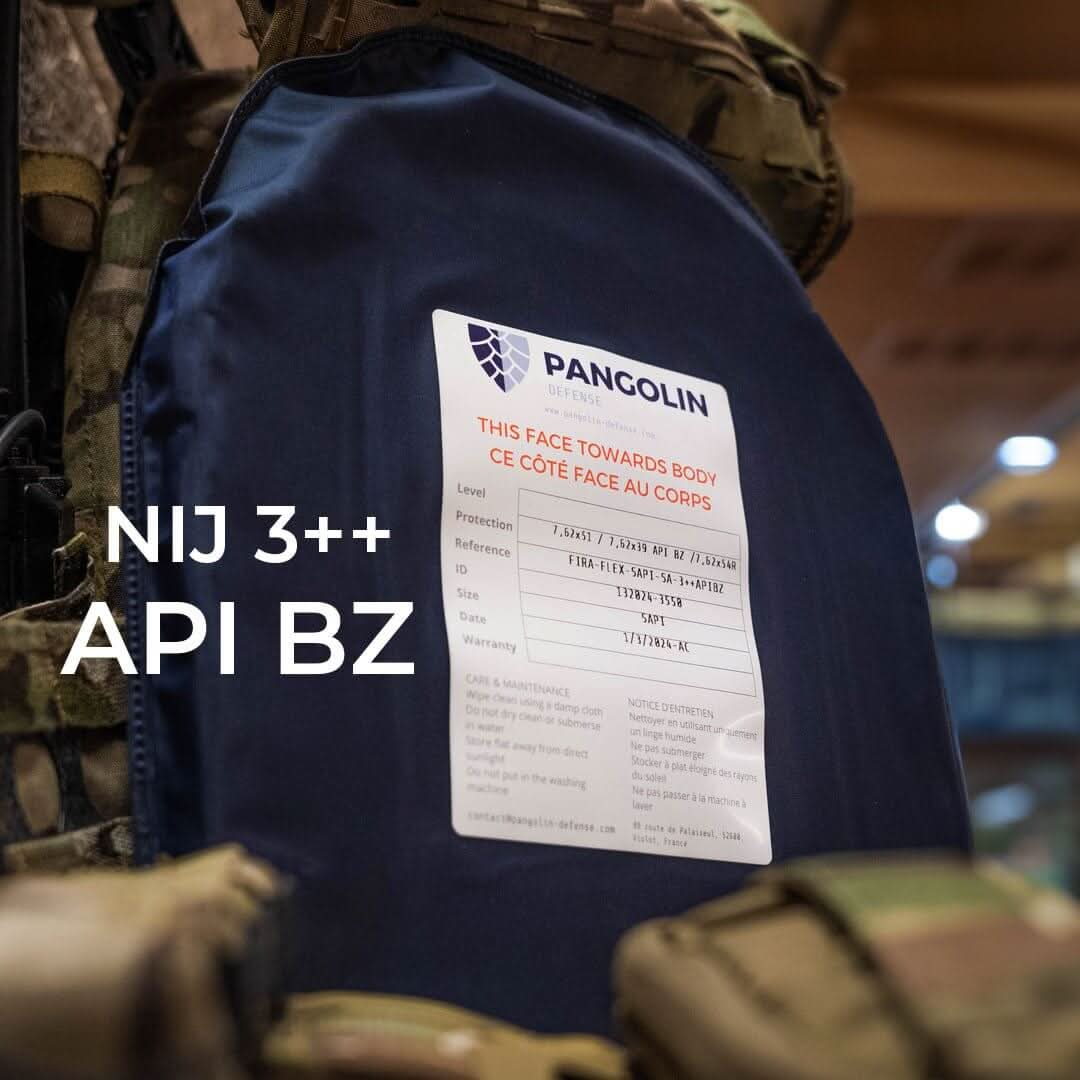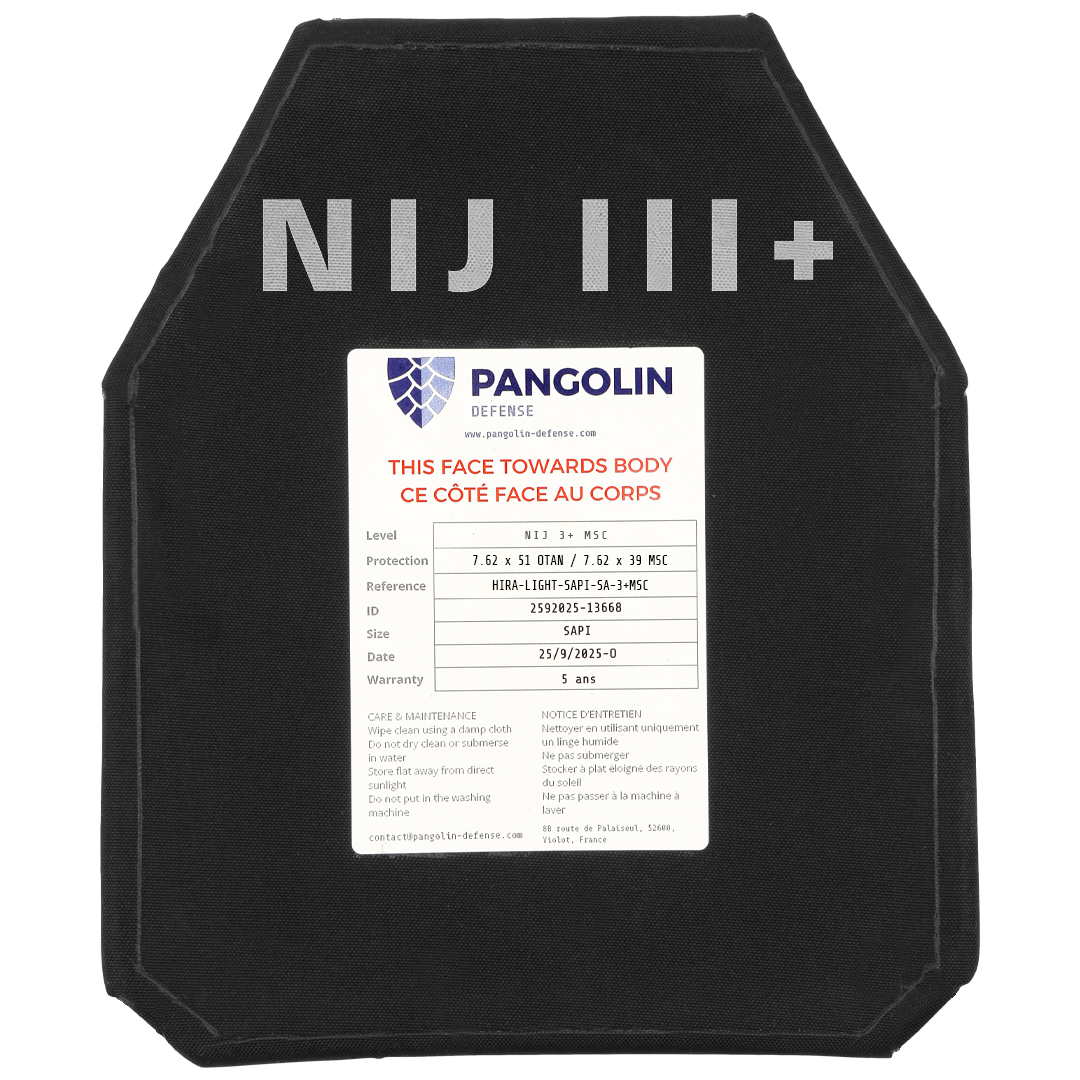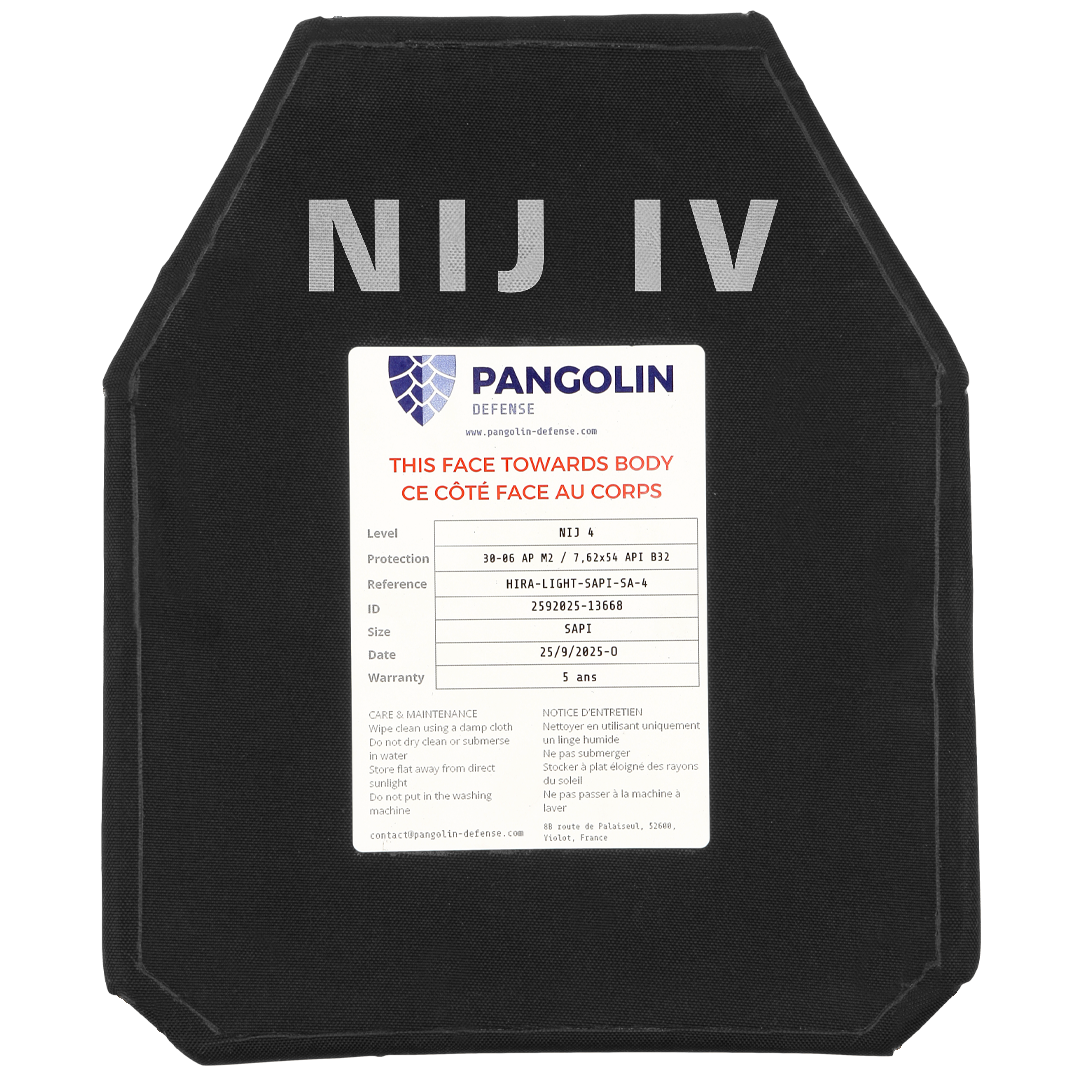Filters
NIJ 3++ SS109 / VPAM 7 flexible ballistic plate
Flexible ballistic plate - NIJ 3++ API BZ / VPAM 8
Rigid Ballistic Plates - Hard Insert / Rifle Armor NIJ 3+
Rigid Ballistic Plates - Hard Insert / Rifle Armor NIJ 4
We advise you
NIJ Ballistic Protection Levels Guide
This chart illustrates the threats stopped by our ballistic plates , from NIJ 3A (handguns) to NIJ 4 (armor-piercing munitions). It provides a clear overview of the resistance levels and allows you to choose the right protection for each mission.
Scalable Protection : The higher the NIJ level, the more powerful calibers the plate stops, ranging from 9mm and .44 Magnum to armor-piercing bullets from assault and sniper rifles.
Need advice? Contact us via online chat , we will guide you in your choice.
For information
NIJ Lab Tested Plates
Our ballistic plates are rigorously tested in a professional laboratory according to strict NIJ standards. Each model fully meets the required criteria, guaranteeing an average penetration of up to 44 mm and resistance to the required number of shots. Our tests ensure reliable protection, meeting the requirements of law enforcement and security professionals. Quality and safety are our top priority.
Need help?
Frequently asked questions about our ballistic plates.
Questions
NIJ 3+ provides additional protection against more powerful ammunition like 5.56mm.
NIJ 3++ protects against armor-piercing (AP) ammunition such as the SS109.
NIJ 4 is the highest level, stopping 7.62mm AP caliber armor-piercing bullets.
Our plates follow the standard SAPI 25x30 cm format, compatible with the majority of plate holders on the market. Make sure your plate holder accepts this format.
Yes, our plates are tested in independent laboratories according to NIJ standards. The tests guarantee their reliability and performance.
Stand Alone (SA) : Plates that provide complete ballistic protection without requiring additional protection.
In Conjunction With (ICW) : Plates that require soft armor (NIJ 3A) underneath to achieve their advertised level of protection. They are lighter but depend on the addition of soft armor.
The front and back plates are sold individually. The side plates are sold in pairs.
The main difference lies in weight and price. The PRO range is more affordable but also heavier, while the FLEX range is lighter but slightly more expensive. However, there is no difference in terms of protection level : both ranges offer the same ballistic effectiveness.




